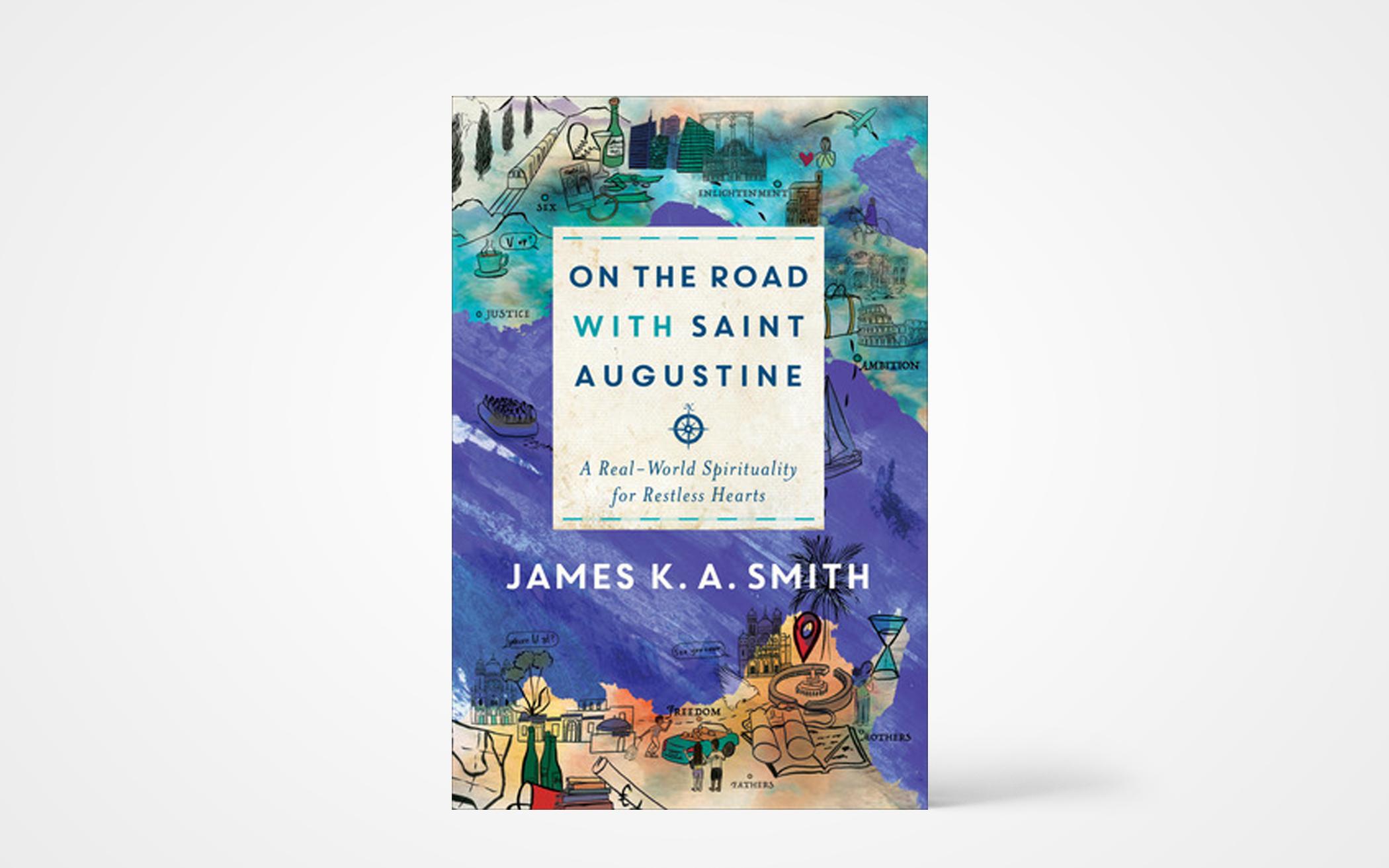It took me seven months to carefully read this exquisite book, and it was worth all the time and care. For some reason, I have long been interested in Saint Augustine, an ancient African church father whose story and ideas and words ring across the millenia. True confessions: I have no interest in any other ancient philosophers. Just this one guy. Maybe it’s because Augustine was brimming with passion—for words, books, friends, and even for his beloved concubine, a woman who deeply influenced him but whose name has been lost to history. Passion is enthralling, and so is Augustine.
After reading On the Road With Augustine, I am even more captivated by Augustine and sure I put my money on the right church father with whom to be transfixed.
In these sumptuously written pages, Smith, a philosopher himself, invites us to hit the open road with Augustine, who left his African home as a young man and traveled to Italy in search of ambition, recognition, and purpose. Augustine, says Smith, is the patron saint of restless hearts—a guide who has been there, asked our questions, and knows our frustrations and failed pursuits. As intriguing as it is to learn more about Augustine’s story, about his relationships with his mother, Monica, his disappointing father, and his best friend Alypius, this isn’t a biography.
“This is not a book about Augustine,” Smith writes in the introduction. “In a way, it’s a book Augustine has written about you. It’s a journey with Augustine as a journey into oneself. It’s a travelogue of the heart. It’s a road trip with a prodigal who’s already been where you think you need to go.”
The book really does have the feel of a travelogue, as Smith visits Rome; Santa Monica, Calif.; and other places related to Augustine. But the real destination for readers of restless hearts is God’s home inside us. Here we find rest in the home we are born for but have never seen. We also find out how to stop looking for love in all the wrong places. And Augustine is a bracingly relevant guide.
“This is an invitation to journey with an ancient African who will surprise you by the extent to which he knows you. … If he jackhammers his way into the secret corners of our hearts, unearthing our hungers and fears, it’s only because it’s familiar territory: he’s seen it all in my own soul. Augustine isn’t a judge; he’s more like an AA sponsor. ‘Nothing you could tell me would surprise me,’ he would say. ‘Let me tell you my story.’”
Yes, Augustine is our “AA sponsor” who knows all too well the ways we keep falling into ambitious pits of our own making. Social media is one such pit, but “what if you were wired not to be “liked” but to be loved, and not by many but by One?” (There are many zingers where that came from. Smith is skilled at hitting the bullseyes of our murkiest soul corners.)
Smith writes with particular vulnerability on the topic of mothers and fathers. Monica, who could be a serious (s)mother, nonetheless prayed urgently and with tears for her son, who floundered badly on his path at times. Smith connects Monica’s tears and prayers with those of his wife’s for their children, and it broke me open.
Perhaps the chapter that most moved me was about fathers. Both Smith and Augustine experienced deep disappointment in the choices of their fathers. Smith’s father and stepfather both left him in different ways, his father just as he was embarking on his own journey as a 21-year-old dad. Some fathers, he points out, never leave physically, but their lack of attention and care have nonetheless left wounds and scars. But in the hands of an ancient philosopher and a modern one, there is hope and healing.
At the end of the journey, we are pointed back by Smith and Augustine to the Father who sees and knows us. “Even broken fathers can be reborn,” he writes. “...the best way to be a father is to point your children beyond you, to the Father who never fails.” (Brazos Press)
About the Author
Lorilee Craker, a native of Winnipeg, Man., lives in Grand Rapids, Mich. The author of 16 books, she is the Mixed Media editor of The Banner. Her latest book is called Eat Like a Heroine: Nourish and Flourish With Bookish Stars From Anne of Green Gables to Zora Neale Hurston.

